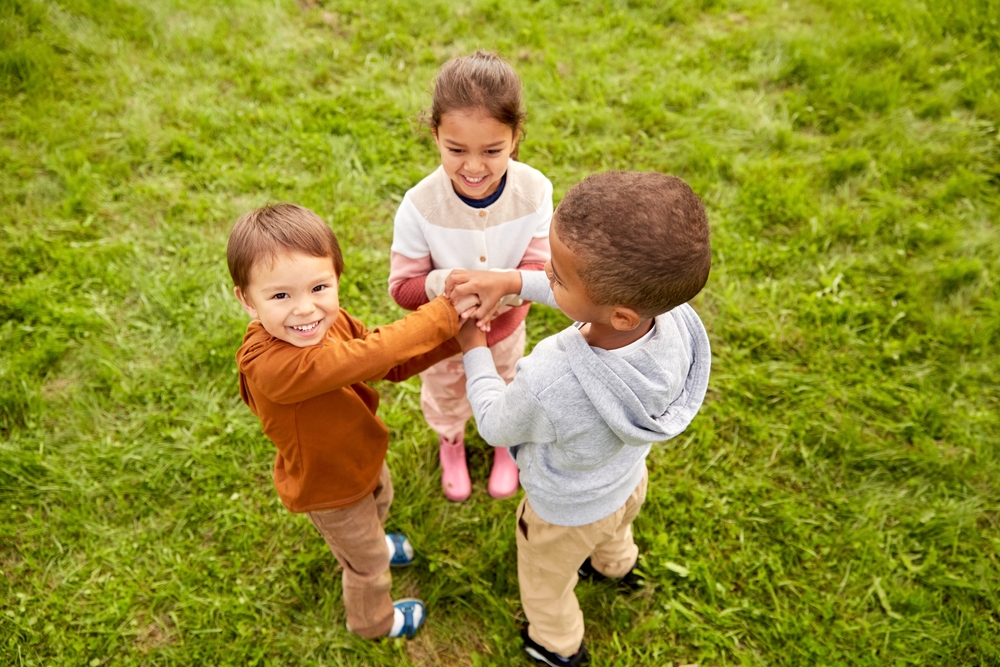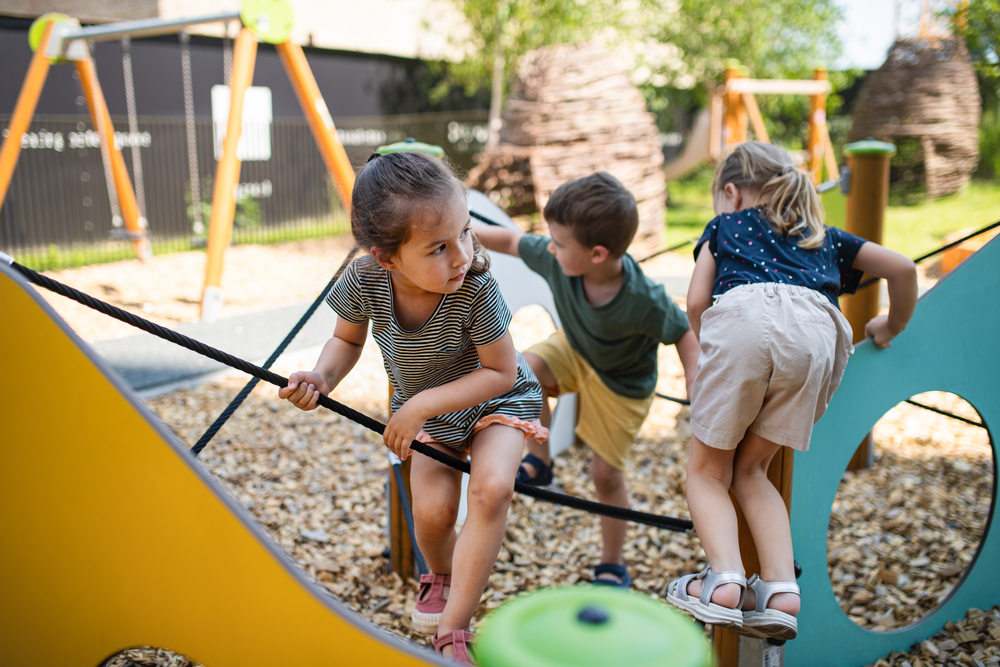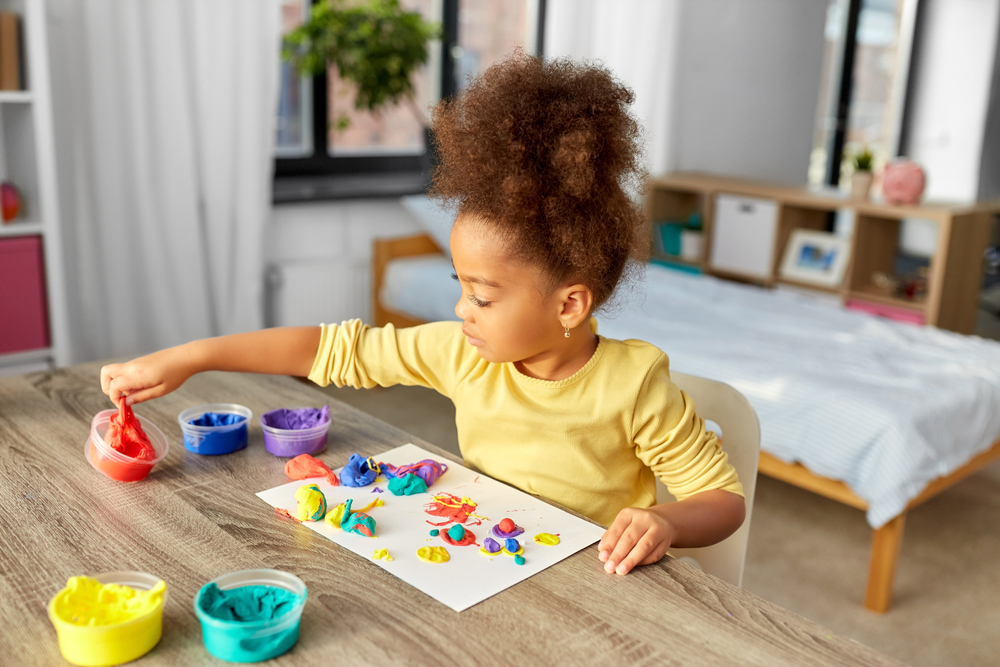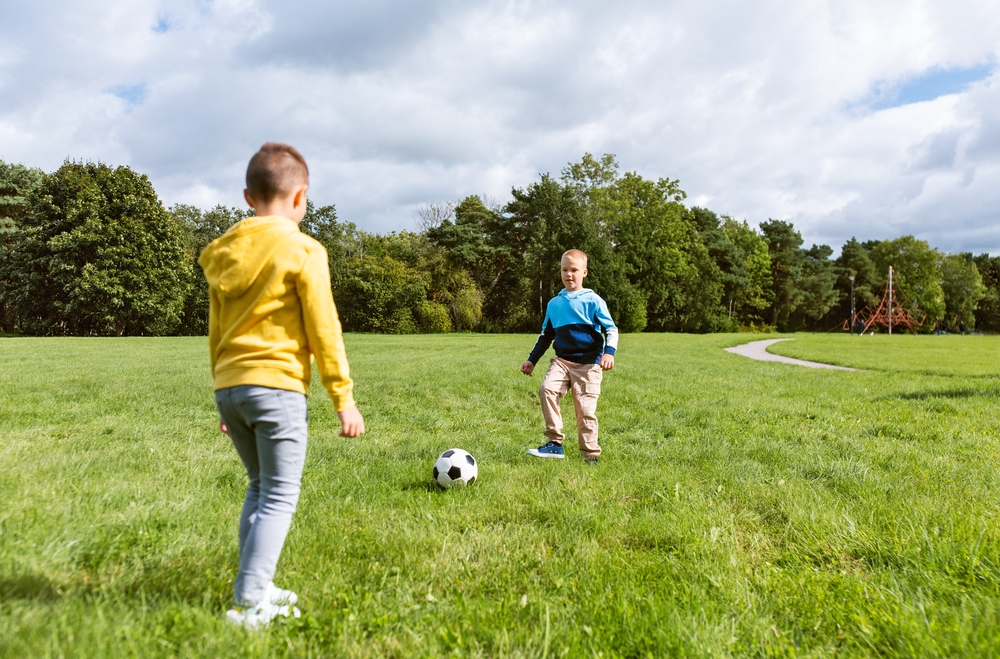How to Address Low Self-Esteem
Identifying low self-esteem is just the first step.
Here's how we can begin to address it:

Create a Safe Space
Encourage open communication where children feel comfortable expressing their feelings without judgment. This safe environment allows children to explore their emotions and thoughts freely, fostering trust and self-acceptance.

Challenge Negative Self-Talk
Help children recognize and reframe negative thoughts about themselves. Teach them to question the validity of their self-critical thoughts and replace them with more balanced, realistic perspectives.

Celebrate Effort, Not Just Results
Praise the process and effort as opposed to focusing solely on outcomes. This approach encourages a growth mindset and helps children understand that their worth isn't tied to perfect results.

Encourage Healthy Risk-Taking
Support children in trying new things, emphasizing that mistakes are opportunities for learning. This approach helps build resilience and reduces fear of failure, which often underlies low self-esteem.

Model Self-Compassion
Demonstrate self-kindness and acceptance in your own behavior. Children learn by example, so showing them how to treat yourself with compassion can help them develop a more positive self-image.
Building Long-Term Self-Esteem
Developing healthy self-esteem is an ongoing process. Here are some strategies for long-term success:

Cultivate Growth Mindset
Introduce the concept of a growth mindset, as researched by psychologist Carol Dweck. This belief that abilities can be developed through effort can significantly boost self-esteem and resilience.
Encourage children to view challenges as opportunities for growth rather than threats to their self-worth. Teach them phrases like "I can't do it yet" instead of "I can't do it."

Foster Emotional Intelligence
Help children identify and express their emotions effectively. Emotional intelligence closely links self-esteem and overall well-being.
Teach children to recognize and name their emotions. Help them understand that all emotions are valid and provide them with healthy coping strategies for managing difficult feelings.

Encourage Positive Self-Expression
Support children in finding healthy outlets for self-expression, whether through art, music, writing, or other creative pursuits.
Creative activities allow children to explore their inner world and develop a sense of competence and uniqueness. Encourage them to engage in activities they enjoy without focusing on the end product.

Build Strong Relationships
Facilitate positive peer relationships and confirm children have at least one supportive adult figure in their lives.
Strong, positive relationships provide children with a sense of belonging and acceptance, crucial for healthy self-esteem. Help children develop social skills and provide opportunities for positive social interactions.

Promote Physical Well-Being
Encourage regular physical activity and healthy eating habits, as physical health closely ties to mental and emotional well-being.
Physical activity releases endorphins, which can improve mood and self-perception. Teach children about nutrition and body positivity, emphasizing health over appearance.
Exercises for Empowerment
Try these exercises to help children build self-esteem:
Gratitude Journal

Encourage daily entries about things they're grateful for, including aspects of themselves. This practice helps shift focus from perceived shortcomings to positive attributes and experiences.
Strength Spotting

Help children identify their unique strengths and talents. Encourage them to use these strengths in daily life and celebrate their unique abilities.
Positive Affirmations

Practice daily positive self-statements. Teach children to create and repeat affirmations that counteract negative self-talk and reinforce positive self-beliefs.
Goal Setting

Set achievable short-term goals to build confidence through accomplishment. Help children break larger goals into smaller, manageable steps and celebrate each milestone.
Mindfulness Practice

Introduce age-appropriate mindfulness exercises to promote self-awareness and reduce anxiety. Simple breathing exercises or guided visualizations can help children connect with their inner selves and reduce stress.
The Role of Professional Help
While many strategies can be implemented at home or in school, sometimes professional help is necessary. If a child's low self-esteem continues or significantly impacts their daily functioning, consider seeking help from a child psychologist or counselor.
These professionals can provide specialized techniques and therapies tailored to the child's specific needs. Cognitive-behavioral therapy (CBT), for instance, has shown effectiveness in treating low self-esteem in children by helping them identify and change negative thought patterns.
The Impact of Praise and Criticism
The way we praise and criticize children can significantly impact their self-esteem. Specific, genuine praise focused on effort and process rather than innate qualities or outcomes can foster a growth mindset and build self-esteem.
For example, instead of saying "You're so smart!" try "I'm impressed by how hard you worked on that problem." This type of praise encourages children to value effort and perseverance.
Similarly, when offering criticism, focus on the behavior rather than the child's character. Instead of "You're so careless," try "Let's think about how we can be more careful next time."
The Power of Responsibility and Independence
Giving children age-appropriate responsibilities and opportunities for independence can significantly boost their self-esteem. When children successfully complete tasks on their own, they develop a sense of competence and self-efficacy.
Start with small tasks and gradually increase complexity as the child grows. This could range from simple chores for younger children to more complex responsibilities for older ones.
The Importance of Failure and Resilience
Protecting children from all failure or disappointment can actually harm their self-esteem in the long run. Learning to cope with setbacks and bounce back from failures is crucial for building resilience and self-confidence.
Encourage children to view failures as learning opportunities. Help them analyze what went wrong and brainstorm strategies for future success.
Celebrate their efforts in facing challenges, regardless of the outcome.
Cultural Sensitivity and Self-Esteem
For children from diverse cultural backgrounds, developing a positive cultural identity is crucial for healthy self-esteem. Encourage pride in their cultural heritage and help them navigate any conflicts between their home culture and the dominant culture.
Expose children to diverse role models and stories that reflect their cultural background. Address instances of discrimination or stereotyping promptly and teach children strategies for maintaining their self-worth in the face of prejudice.
The Role of Physical Activity and Sports
Participation in physical activities and sports can significantly boost self-esteem. These activities provide opportunities for skill development, social interaction, and a sense of accomplishment.
Encourage children to find physical activities they enjoy, regardless of their skill level. Focus on personal improvement rather than comparison with others.
Celebrate effort, teamwork, and good sportsmanship.
Nurturing Creativity and Self-Expression
Creative activities provide excellent opportunities for self-expression and building self-esteem. Whether it's through art, music, writing, or drama, creative pursuits allow children to explore their inner world and develop a sense of uniqueness.
Encourage children to engage in creative activities without focusing on the end product. Praise their efforts, ideas, and the process of creation rather than just the final result.
The Impact of Sleep on Self-Esteem
Adequate sleep plays a crucial role in emotional regulation and overall well-being, which in turn affects self-esteem. Children who are well-rested are better equipped to handle daily challenges and maintain a positive self-image.
Establish consistent bedtime routines and confirm children get enough sleep for their age. Address any sleep issues promptly, as chronic sleep problems can contribute to low self-esteem and other mental health issues.
The Power of Nature and Outdoor Activities
Spending time in nature and engaging in outdoor activities can have a positive impact on children's self-esteem. Nature provides a non-judgmental environment where children can explore, take risks, and develop confidence in their abilities.
Encourage regular outdoor play and nature-based activities. These experiences can help children develop a sense of connection to the world around them and boost their overall well-being.
The Role of Nutrition in Self-Esteem
While not often considered, nutrition can play a role in children's self-esteem. A balanced diet supports overall health and well-being, which can positively impact mood and self-perception.
Teach children about healthy eating habits without focusing on weight or appearance. Encourage a positive relationship with food and body image from an early age.
The Importance of Positive Self-Talk
Teaching children to engage in positive self-talk can be a powerful tool for building and maintaining self-esteem. Help them recognize negative self-talk and replace it with more positive, realistic statements.
Practice positive affirmations together and encourage children to develop their own. Remind them to speak to themselves as they would to a good friend.
The Role of Community and Belonging
A sense of belonging to a community can significantly boost a child's self-esteem. This could be through family, school, religious groups, or extracurricular activities.
Encourage children to participate in community activities and help them find groups where they feel accepted and valued. Teach them the value of contributing to their community and helping others.
The Role of Reading and Storytelling
Books and stories can be powerful tools for building self-esteem. They can provide positive role models, teach coping strategies, and help children understand that everyone faces challenges.
Choose books that feature diverse characters and storylines that promote self-acceptance and resilience. Discuss the stories together, exploring themes of self-esteem and personal growth.
The Power of Mindfulness and Meditation
Mindfulness and meditation practices can help children develop self-awareness and emotional regulation skills, which contribute to healthy self-esteem.
Introduce age-appropriate mindfulness exercises, such as deep breathing or body scans. These practices can help children connect with their inner selves and develop a sense of calm and self-acceptance.
The Role of Humor and Playfulness
A sense of humor and the ability to be playful can be powerful tools for building resilience and maintaining healthy self-esteem. Encourage laughter and playfulness in daily life.
Teach children to laugh at themselves in a kind way when they make mistakes. Model using humor to cope with challenges and maintain a positive outlook.
Key Takeaways
Create a Supportive Environment: Build safe spaces for open communication, celebrate effort over results, and model self-compassion to encourage self-acceptance.
Encourage Growth: Promote a growth mindset, healthy risk-taking, and resilience by viewing mistakes and failures as learning opportunities.
Foster Emotional and Social Skills: Teach emotional intelligence, provide outlets for self-expression, and strengthen peer and adult relationships.
Promote Physical and Mental Well-Being: Emphasize the importance of nutrition, physical activity, adequate sleep, and mindfulness practices to support overall health and self-esteem.
Address External Influences: Help children navigate cultural identity, combat stereotypes, and critically assess media messages to build confidence and self-worth.
